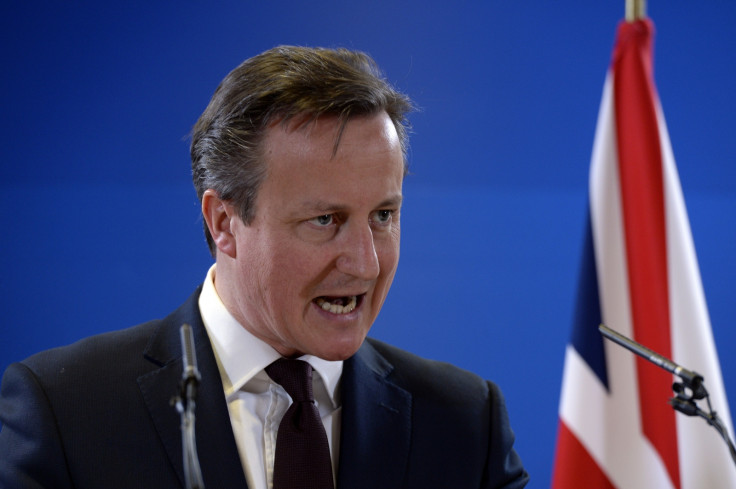David Cameron hopes to lower child poverty by changing how it is measured

David Cameron hopes to change the ways in which child poverty is measured as new figures are expected to show it has increased for the first time in 10 years.
The prime minister chaired a meeting with members of his Cabinet on 23 June, including Education Secretary Nicky Morgan and Work and Pension Secretary Iain Duncan Smith, to discuss bringing in a new definition.
Currently, child poverty is defined as a child living in a household with an income of less than 60% of the national average.
Cameron is said to have discussed whether this is an accurate way for the government to measure child poverty ahead of the publication of official Below Average Income statistics, in which the Institute for Fiscal studies is expected to announce there has been a rise of children in poverty from 2.3 million to 2.5 million – the first time there has been an increase in a decade.
The government is expected to argue these figures do not offer a true representation of child poverty in the UK and plans to change the measurements.
In a speech delivered in Runcorn the day before he held the Cabinet meeting, Cameron hinted about changing the definition of child poverty.
"Just take the historic approach to tackling child poverty. Today, because of the way it is measured, we are in the absurd situation where if we increase the state pension, child poverty actually goes up," said Cameron.
In their election manifesto, the Tory party said they would "work to eliminate child poverty and introduce better measures to drive real change in children's lives, by recognising the root causes of poverty: entrenched worklessness, family breakdown, problem debt, and drug and alcohol dependency".
A spokesperson for Number 10 told the Guardian that Cameron met with his ministers to discuss "how to have the right measures in place to drive real change to tackle the root causes of poverty".
It is no good pulling bodies out of the river, without going upstream to see who is throwing them in – especially, if turns out the culprit is government policy.
"Some of this ties in with the argument the prime minister was making [in Runcorn]. He wants the government to focus more on tackling the causes of the issues, rather than just treating the symptoms."
Cameron is said to have "concerns" about how poverty is measured as it does not take into accounts changes on income due to influences such as the recession.
The spokesperson added: "If you look at the recession, the measured rate of child poverty fell because, actually, overall people's income in the UK was falling, and child poverty was therefore seen to have fallen because it is a relative measure."
Commenting on Cameron's speech in Runcorn, Alison Garnham, Chief Executive of Child Poverty Action Group, said: "Almost a decade ago, the prime minister spoke of poverty being a moral disgrace and an economic waste. That was right then and is right now. No road to opportunity starts with policies that may end leaving three million children in poverty. No moral mission involves taking away tax credits for our poorest children. No serious plan for the low paid begins with making them poorer by cutting their tax credits.
"You can't have one nation if children's lives, opportunities and life chances at every turn are shaped and limited by poverty. The Government's child poverty approach is failing but the Prime Minister's speech today simply missed the point and failed to set out what his Government will do to prevent his legacy being the largest rise in child poverty in a generation.
"We need to move from denial to decisive action. That means instead of highlighting symptoms of poverty, such as debt, he needs to tackle the root causes. It is no good pulling bodies out of the river, without going upstream to see who is throwing them in – especially, if turns out the culprit is government policy. The right choices that would reduce poverty include protecting children's benefits with the same triple lock protection pensions enjoy, fixing the deep cuts to tax credit help for the low paid, tackling cripplingly high rents, high childcare costs and expanding free school meals."
© Copyright IBTimes 2024. All rights reserved.






